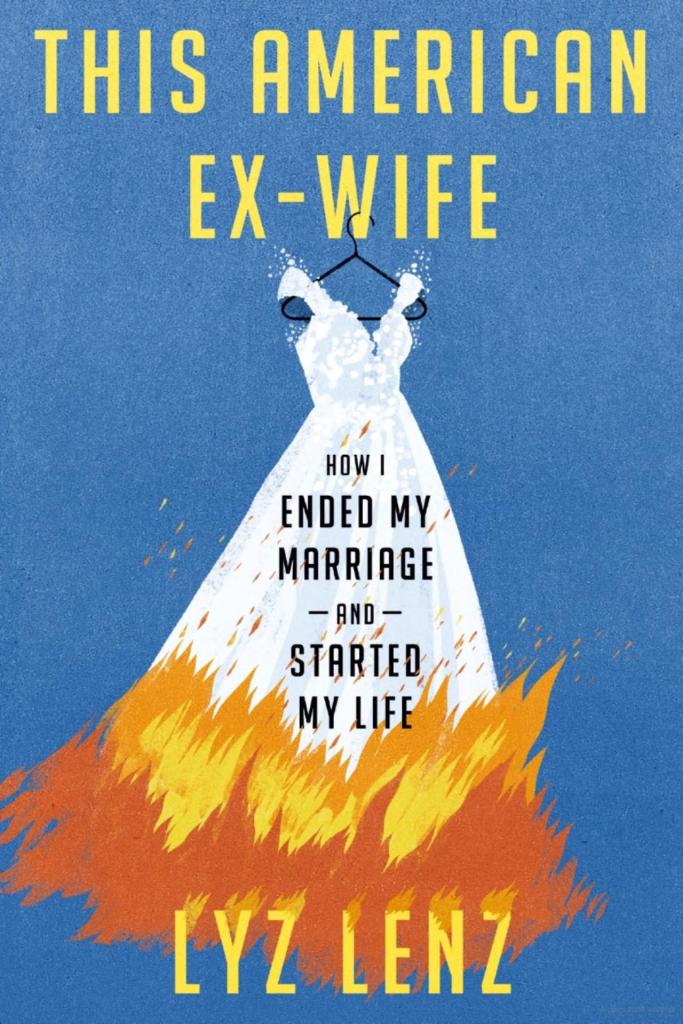I don’t know Lyz Lenz, and I promise I’m not reviewing her book because it quotes me! I found out about that fact only after I’d pre-ordered this engaging read about a woman who realized, “I could be successful or I could be married.”
Lenz reminds me of Lara Bazelon when she writes, “I don’t have to win a Nobel Prize or be a heart surgeon for my life, my ambition, and my happiness to be worth fighting for.” She describes how those things were all dulled inside a union marked by the “commonplace horror” and “everyday indignities” of an unequal division of domestic labor and childcare. Lenz tried to save her marriage anyway: “I was holding on so tightly to what I had been told was good and right, I could barely breathe.” But when she stopped trying, clarity descended. Lenz concluded: “the better thing I wanted did exist, and it was me.”
On the other side of divorce, Lenz writes, “I waited to be destroyed by the lusts of the flesh, like my Evangelical childhood promised, but instead my sins rebuilt me.” She joined a “whisper network of women who’d broken their lives apart and found freedom and happiness.” That explains why Lenz crafted a book that is “not gentle divorce apologetics but a full-throated argument in favor of it.”
“[E]ven if we go with the low 40 percent number for the likelihood that a marriage will fail, if 40 percent of Honda CR-Vs had engine failures, Honda would issue a recall,” Lenz writes with her characteristic combo of wit and sass. And yet, culture and government continue to “[f]orce people into marriage in the name of cutting the social safety net…. We need women wedded to their romantic partnerships so much that they’ll quit their jobs and abandon their dreams so that men can pursue theirs.” Once they’re wed, “entire industries … show women how to ask their husbands to do more cooking and cleaning … training a grown man like a horse.” But women shouldn’t have to beg, and a lot of the time it doesn’t help when they do. For Lenz, help “only came when things were dire,” and, she writes, “I didn’t need help; I needed to not carry it all.” Lenz acknowledges that individual women can thrive within marriage, but says, “[T]he system itself will always subsume the female partner.” So “who does telling couples that divorce is the easy way out benefit? It benefits the people who don’t do the work.”
With similar verve, Lenz takes on surname changes, the post-divorce revenge body, and the heart-rending possibility that maybe we’re the problem: “Perhaps spending time with me was like being scrubbed with a Brillo pad…. Maybe if I was calmer, smiled more, contradicted less?” I felt that line in my bones. And I felt like I walked alongside Lenz as she, in her words, “ended up very drunk on a Tuesday night, with my mom friend Kristie at Taste of Cedar Rapids.”
“[W]e can have it all. So many women have. We just have to find another pathway to get there,” Lenz writes. And though she didn’t set out to do so, her book illuminates that pathway in the negative, like a shadow puppet show, for folks who want to save their marriages. Don’t do what her husband did; don’t tolerate what she tolerated. For those who conclude, like Lenz, that staying would be impossible without sacrificing themselves on the nuptial altar, she offers a hopeful note, even as she sounds the death knell for marriage: “Love and relationships, those are worth keeping. Home and family are worth cherishing. But those things can be accomplished successfully outside of the nuclear unit of husband and wife.”
